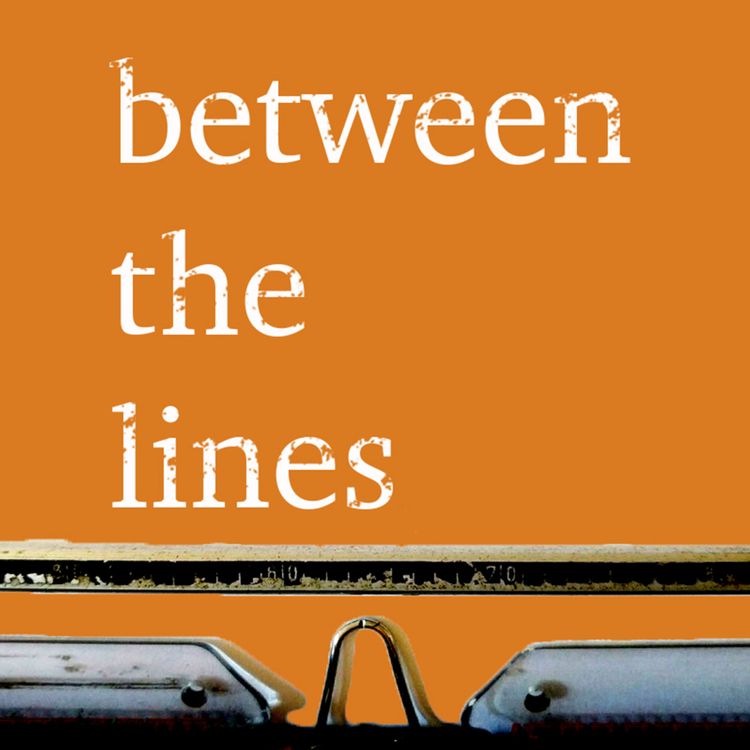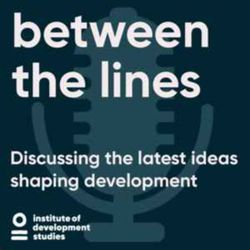Share

Between the Lines
Battling Eight Giants: Basic Income Now – Guy Standing
Season 2, Ep. 12
•
An increasing number of countries around the world have been trialling a ‘basic income’ for their citizens, and the Covid-19 pandemic has highlighted the need for governments to reevalutate and strengthen social safety nets. The UN has called for a Temporary Basic Income, to provide a lifeline for the world’s poorest. Could something like a ‘Universal Basic Income’ help in Covid-19 recovery, and in the longer-term, help to address some of societies biggest challenges?
In this episode of Between the Lines, Phil Mader speaks with Guy Standing, a leading expert on the basic income concept, about his book, Battling Eight Giants: Basic Income Now.
More episodes
View all episodes

1. What is Development?
45:08||Season 8, Ep. 1The term ‘development’ has been central to global conversations for decades, but the way it is understood, practised, and questioned has shifted dramatically. We’re launching our new podcast season by unpacking the evolution of development and tackling the question of what it means in today’s context. In this episode of Between the Lines. IDS External Affairs Officer, Jigyasa Agarwal speaks with Roy Trivedy, former UN Resident Coordinator and UK civil servant; Camille Accolas, ecosystem builder in biodiversity and nature technology; and Emre Yuksek, Senior Advisor at the Turkish Cooperation and Coordination Agency. Their careers span across diplomacy, humanitarian action, policy design, and emerging sustainability sectors.
10. Equity in research for development
53:46||Season 7, Ep. 10Creating equity in research collaboration sounds straightforward - but it often isn't. Whilst everyone can agree that splitting the power, resources and benefits between all partners is the right thing to do, there is often difficulty in translating aspirations for “equitable partnerships” into practical action. This can be due to complex factors such as colonial legacies and structural power imbalances in research ecosystems.How can these challenges be overcome? To find out, IDS Director Peter Taylor speaks to Margarita Gómez from Southern Voice and Kaia Ambrose from IDRC.In this Between the Lines podcast they discuss why equity in research collaboration matters and talk about the challenges in achieving it, and practical steps toward action and accountability.
9. An interview with Haneen Sayed, Lebanon's Minister of Social Affairs
34:17||Season 7, Ep. 9For the past five years Lebanon has faced crisis upon crisis including; economic collapse, the Beirut Port blast, and Israel’s war. But now the country is entering a new political chapter under a new government, marked by shifts in priorities and a renewed attention to social policy. In this podcast IDS Research Fellow, Philip Proudfoot, interviews Haneen Sayed, Lebanon’s Minister of social affairs who talks about her country’s main issues. Philip asks the Minister these key questions: After five years of crisis upon crisis, what do you see as Lebanon’s need right now? How is the new government approaching social protection differently from the government that came before? Financing is always a challenge, especially with the increasing withdrawal of international support, is this an obstacle or an opportunity? At the recent second world summit on social development in Doha, the high-level panel made a big push for social protection as a stabilisation mechanism. What might this mean for Lebanon, the social contract, and the building blocks needed to enhance and build it.
8. Debating policy recommendations about inclusive social protection in protracted crises
40:45||Season 7, Ep. 8Governments need to focus on local practical delivery, and people focused mechanisms, including dignity to deliver more effective social assistance in crisis contexts, experts explain in a new episode of the Between the Lines podcast.In this episode, researchers and policymakers examine why and how and when to use social protection approaches in different crisis contexts so that more effective social assistance can be delivered. This includes examples of Syrian refugees in Lebanon and Jordan.This episode features a combination of researchers, policy makers and practitioners from the IDS-hosted programme Better Assistance in Crisis Research (BASIC) who share findings and recommendations. They comprise:Rachel Slater, consultant from Better Assistance in Crisis Research (BASIC) project;Nadine Khayat, senior lecturer, School of Architecture and Design, Beirut Urban Lab;Julie Lawson McDowall, senior social protection advisor at Save the Children;Charlotte Bilo, child poverty and social protection consultant, UNICEF.The discussion looks into detail about a particular theme of basic research – and that it is how in these really difficult crisis settings (with examples of Syrian refugees in Lebanon) we can make social protection more inclusive. The second thing they focused on is how we talk about policy implications of basic research.
7. Breaking the silence on caste in academia
54:26||Season 7, Ep. 7Caste isn’t just a South Asian issue — it shapes who speaks, who listens, and who is heard in academic and development spaces worldwide. In this episode of Between the Lines, we confront how caste hierarchies continue to influence the production of knowledge, access to opportunity, and the experience of being in higher education.Hosted by Chandni Sai Ganesh, MA Gender and Development alum at the Institute of Development Studies (IDS), this conversation brings together anti-caste scholars and activists Aarti Rajput, Ritu Kochar, and Priyanka Samy. They speak about the silences, exclusions, and resistances that define their journeys in the UK and global academic contexts.
6. Between roles: Mother, student, or self?
48:05||Season 7, Ep. 6What does it mean to navigate motherhood while pursuing a postgraduate degree? How do students balance identity, care, and academia in a world not built with them in mind?In this IDS Between the Lines podcast, MA Gender and Development (GAD) students Patronela Tshuma, Chaltu Merera Fana, and Akinyi Ochieng’ speak about their journeys as mothers pursuing higher education. Hosted by Akinyi Ochieng, the episode delves into personal stories of motivation, cultural expectations, identity conflicts, and the transformative power of education.
5. Dignity in development
44:41||Season 7, Ep. 5The development sector proclaims that it values dignity. Yet it often breaks this promise, with people leaving encounters with charities feeling bruised and unseen. In this podcast, drawn from a recent lecture at IDS, research fellow Marina Apgar is in conversation with Tom Wein from the IDinsight Dignity Initiative who examines dignity as a core value around the world.Drawing on his in-progress research for his future book Lives of Dignity, Tom explores how dignity serves as both a universal human value and a practical principle for improving development outcomes and offers compelling evidence that dignity matters deeply to people worldwide.
4. The empathy fix: Why poverty persists and how to change it
46:57||Season 7, Ep. 4A poverty line of $6.85 a day, as used by the World Bank, indicates a substantial level of deprivation, impacting the lives of billions globally. Indeed, nearly half of the World’s population falls into this category. So, if poverty is something we all want to see less of, why does it prove so difficult to tackle and can empathy help fix it?In this podcast, IDS Research Fellow Stephen Devereux is in conversation with Keetie Roelen, Senior Research Fellow from the Open University and an IDS Research Associate who talks about her book, The Empathy Fix: Why Poverty Persists and How to Change it.In the podcast, Keetie exposes the realities of poverty – with examples from the Global North and South – and reveals why current policies don’t work.
3. Humanitarian diplomacy in a world gone mad
30:18||Season 7, Ep. 3Humanitarian diplomacy is a broad landscape and possibly one with internal contradictions. For example, traditionally humanitarian agencies have sought to distance themselves from mediation and human rights activism. The concept of humanitarian diplomacy requires at least an end to these silos. But how is the distance to be managed?In this special podcast – recorded at a recent Sussex Development Lecture – Lewis Sida, IDS Honorary Associate and Co-Director of the IDS-led Humanitarian Learning Centre is in conversation with Martin Griffiths, former Under-Secretary-General for Humanitarian Affairs and Emergency Relief Coordinator of the United Nations. Martin brings extensive experience as a global mediator and his work has made him a key figure in humanitarian diplomacy.In this podcast Martin presents his own definition of the concept which includes: independent and principled mediation to end conflicts; humanitarian negotiation for access and protection; and advocacy against impunity and violations of international humanitarian law.This podcast is a must-listen for those working and studying in humanitarian issues – particularly in today’s global climate where conflict continues and humanitarian advocacy is needed more than ever.